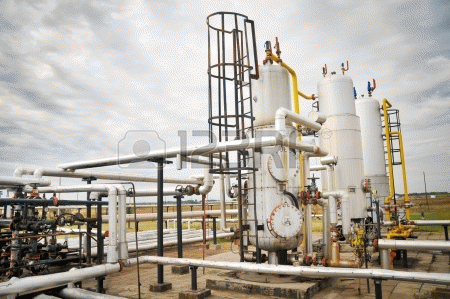Dr. Mohammad Mosaddegh had nationalized the Anglo-Iranian Oil Company (AIOC) when it refused to be audited in early 1952-53 time frame. The refusal confirmed a suspicion that there had been gross exploitation of Iran's oil with only a small percentage (1%-%3) of AIOC's income going to Iran and the majority going to Britain.
At the request of the British government following pressures from AIOC's executives, with the help from CIA, staged demonstrations against Dr. Mosaddegh, his government was overthrown in 1953 paving the way for the Shah to return from exile.
In 2014-2015 time frame, a number of people who had read Iranian oil contracts and agreements have spoken that there were a possibility that the Iranian government during Shah's regime did not realize the term of the contracts was limited to the time while Shah or his regime (Pahlavi) remained in power. Possibly this error was due to the vagueness and ambiguity in the language of the western contracts with Iranian national oil company. Other possibilities are that the Iranian government during Shah believed that such provisions were standards in international contracting or that it did not foresee any threat to its existence.
Iran had invested its oil revenue in many western companies and projects (1960-1975), in some cases, approximately, 40% of these projects were Iranian owned. Yet Iran's share of these projects is now uncertain.
Whatever the reason(s), it is now clear that Western oil companies did obtain their shares and necessary funds and profits from contracts, and after observing a few years of political stability in Iran, they fostered regime change as a way to cancel the oil agreements to their advantage. This is what seems to have happened. Western countries always were in negotiations with the opposition whom they had created and financed in the Dr. Mosaddegh's time (1951-1953) and were waiting for another opportunity to arise (1976-1978) to cancel oil agreements while keeping the profits and Iran's investment shares in their organizations. (Iran had invested in many western companies such as Pan American Airlines and Britain's Water Department to name a few. These shares were basically confiscated after fall of Shah).
Looking over the Iran's history from the time when British army arrived in West Asia, they started causing anarchy including changing the name of the region to Middle East. Western countries should not be exempt from prosecution in international courts. However, the world and legal systems (including those of UN agencies) are run by the rule of force not any rule of law, especially for the weaker countries. It seems that there was nothing that could be done to force oil and gas companies into compliance of international norms and laws so powerful companies and countries kept doing what they wanted. The good news is that there are sufficient records to explore the crimes committed against Iranian people from a number of venues including international treaties and enactments.
What took place in western courts in 1980-1990 and even up to 2000 time frame against Iran's investments in western owned companies, it was not that I expected justice from the UK or US courts, but that an international tribunal might take an interest if those who are still alive or have a copy of oil contracts and agreements would present their existing evidences.





